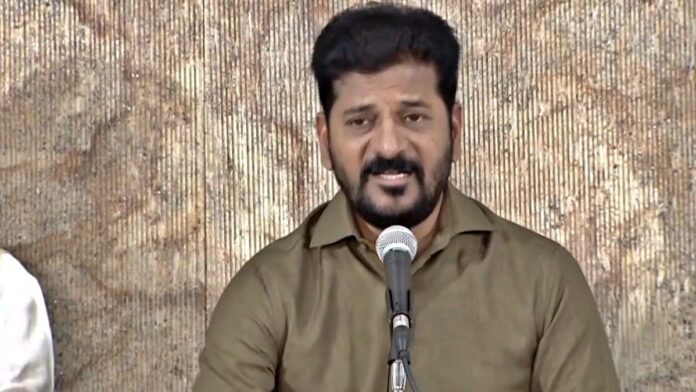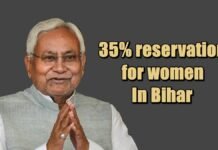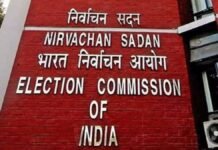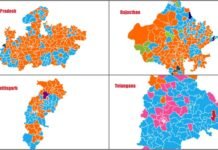
Key Points
- Telangana High Court places interim stay on Revanth Reddy government’s 42% reservation for Backward Classes in local body elections
- Previous BC reservation was 24%, increased to 42% as Congress election promise fulfillment
- Total state reservation now at 67% (42% BC + 15% SC + 10% ST), exceeding Supreme Court’s 50% limit
- Court ruling puts upcoming Panchayat and Zilla Parishad elections in uncertainty
- Petitioners argue government order violates Supreme Court’s triple-test formula and reservation ceiling
- Backward class community protests erupted following court decision
- Telangana government given four weeks to file counter-affidavit, next hearing in six weeks
- Division bench of Chief Justice Aparesh Kumar Singh and Justice GM Mohiuddin issued the stay order
Hyderabad: A significant electoral promise made by the Congress party in Telangana has hit a major legal roadblock, threatening to derail the state government’s ambitious reservation policy for Backward Classes. The Telangana High Court delivered a crucial blow to Chief Minister Revanth Reddy’s administration by imposing an interim stay on the government’s decision to substantially increase reservation for Backward Classes from 24 percent to 42 percent in local body elections.
Electoral Promise Meets Legal Challenge
The increased reservation was a cornerstone promise made by the Congress party during the Telangana Assembly elections, aimed at consolidating the party’s support base among the backward class communities that constitute a significant portion of the state’s electorate. After coming to power, the Revanth Reddy government moved swiftly to implement this electoral commitment, issuing a government order that nearly doubled the reservation percentage for Backward Classes in local body elections.
However, this aggressive expansion of reservation benefits immediately attracted legal scrutiny and was challenged in the Telangana High Court. On Thursday, a division bench comprising Chief Justice Aparesh Kumar Singh and Justice GM Mohiuddin heard multiple petitions challenging the government’s order and issued an immediate interim stay, effectively suspending the implementation of the 42 percent reservation.
Impact on Upcoming Elections
The High Court’s stay order has created significant uncertainty regarding the conduct of upcoming local body elections in Telangana. The state election authorities had already issued notifications for Panchayat and Zilla Parishad elections based on the enhanced reservation structure. With the legal foundation of these notifications now in question, the entire electoral process faces potential postponement until the matter is resolved through proper judicial review.
This delay could have far-reaching political implications, as local body elections serve as important indicators of public sentiment and provide governance structures at the grassroots level. The postponement may affect development projects, fund allocations, and administrative decision-making at the village and district levels across Telangana.
Constitutional Violations Alleged
The legal challenge to the reservation increase centers on fundamental constitutional principles and Supreme Court precedents regarding reservation policies. Advocate K. Vivek Reddy, representing the petitioners, presented compelling arguments before the High Court highlighting multiple violations of established legal frameworks.
The primary contention raised by the petitioners is that the Telangana government’s decision directly contravenes clear Supreme Court directives on reservation limits. India’s apex court has consistently held that total reservations in any category should not exceed 50 percent under any circumstances, a principle established to balance social justice objectives with merit-based selection and equal opportunity principles.
By increasing Backward Class reservation to 42 percent, the Telangana government has pushed the state’s total reservation to an unprecedented 67 percent. This figure includes 15 percent reservation for Scheduled Castes, 10 percent for Scheduled Tribes, and the newly enhanced 42 percent for Backward Classes. The petitioners argue this represents a clear violation of the constitutional 50 percent ceiling mandated by the Supreme Court.
Triple-Test Formula Violation
Beyond the reservation ceiling issue, the petitioners also contended that the government’s order fails to satisfy the “triple-test” formula established by the Supreme Court for determining reservation in local body elections. This judicial framework requires state governments to fulfill three specific conditions before implementing or modifying reservation policies in local governance structures.
The triple-test mandates that governments must: first, establish a dedicated commission to conduct a rigorous and contemporary study of the Backward Classes’ representation in local bodies; second, specify the nature of backwardness and inadequacy of representation in these bodies; and third, ensure that the total reservation does not breach the 50 percent threshold established by constitutional jurisprudence.
The petitioners’ argument suggests that the Telangana government may have failed to adequately fulfill these mandatory requirements before drastically expanding the reservation percentage, thereby undermining the legal validity of the government order.
Community Response and Street Protests
The High Court’s interim stay has triggered immediate and intense reactions from the Backward Class community across Telangana. Members of various BC organizations and political groups took to the streets in multiple districts, expressing their strong opposition to the judicial intervention and demanding protection of their reservation rights.
The protesters view the increased reservation as a long-overdue recognition of their community’s underrepresentation in local governance structures and their socio-economic challenges. They argue that the enhanced quota addresses historical injustices and provides necessary opportunities for political participation and community development.
BC community leaders have issued stern warnings that any attempt to dilute or reverse the reservation increase will be met with sustained and widespread agitation across the state. They have threatened to launch a massive statewide movement if their rights are compromised, potentially creating significant law and order challenges for the state government.
Legal Timeline and Next Steps
The High Court has established a clear procedural timeline for the resolution of this contentious issue. The Telangana government has been granted four weeks to prepare and file a comprehensive counter-affidavit responding to the petitioners’ arguments and defending the constitutional validity of its reservation policy.
During this period, the state’s legal team must assemble evidence demonstrating compliance with the triple-test formula, justify the breach of the 50 percent reservation ceiling if possible, and present any other legal grounds supporting the enhanced reservation structure.
Following the government’s submission, the petitioners will receive an additional two weeks to file their rejoinder, responding to the government’s arguments and reinforcing their constitutional objections. The next substantive hearing in this case is scheduled to take place after six weeks, allowing adequate time for all parties to present their complete legal positions.
Political Implications for Congress Government
This judicial setback represents a significant political challenge for the Revanth Reddy-led Congress government in Telangana. The reservation increase was not merely an administrative decision but a central electoral promise that helped the Congress party secure substantial support from Backward Class voters during the Assembly elections.
The inability to implement this promise due to legal complications could damage the government’s credibility among its core support base and provide ammunition to opposition parties, particularly the Bharat Rashtra Samithi (BRS) and the Bharatiya Janata Party (BJP), to criticize the Congress administration’s governance capabilities.
The coming weeks will be crucial as the state government navigates the complex legal terrain while managing community expectations and political pressures. The outcome of this case will likely have significant implications for reservation policies not just in Telangana but potentially across other states grappling with similar demands for expanded reservation benefits.





















































